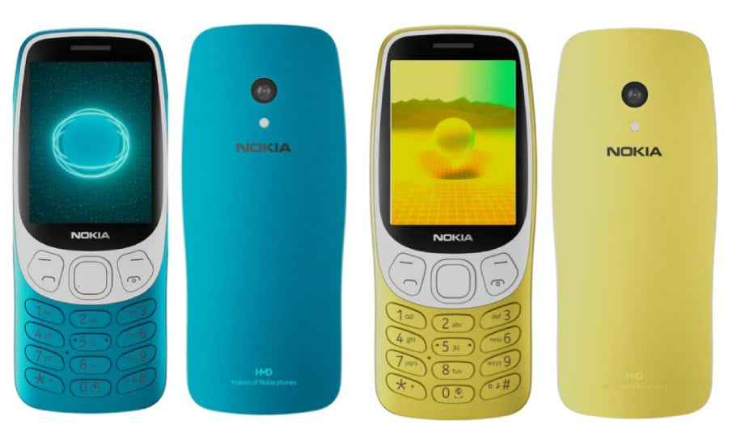Home >Technology peripherals >It Industry >Nokia 3210 classic reappears: the 2024 version integrates modern technology to relive the feelings of the past
Nokia 3210 classic reappears: the 2024 version integrates modern technology to relive the feelings of the past
- 王林forward
- 2024-05-08 20:55:101157browse
HMD Global, as a manufacturer responsible for the production of Nokia devices, recently announced that it will perfectly combine retro style with a sense of technology. They plan to re-launch the 1999 classic Nokia 3210 mobile phone in 2024. This new model will retain the spirit of the original 3210, but will be more inclined to the 6310 style in design, presenting a more modern appearance.

The new Nokia 3210 (2024) adds a 2-megapixel camera on the back, which is in sharp contrast to the camera-less design of the original 3210 and greatly improves the The shooting function of mobile phone. In terms of hardware configuration, this phone is equipped with a 2.4-inch QVGA display, which can bring a basic visual experience. It is equipped with a Unisoc T107 processor inside, ensuring the smooth operation of the phone.
This phone is equipped with two storage options: 64GB and 128GB, and supports microSD card expansion, which significantly increases the storage space of the phone. In terms of battery, this phone is equipped with a battery with a capacity of 1450mAh, which ensures good battery life.
This Nokia 3210 (2024) supports Nano-SIM card and SIM function, and is equipped with Bluetooth 5.0, making mobile phone connection more convenient. This phone also uses a USB-C interface for charging, and still retains the 3.5mm headphone jack. It also supports 4G networks, allowing users to have a better experience in network connections.
Data retailer revealed that the new Nokia 3210 (2024) will be officially launched on May 8, priced at 89 euros. The launch of this phone will undoubtedly trigger a wave of nostalgia, and it also demonstrates Nokia's determination to actively embrace technological innovation while retaining classics.
The above is the detailed content of Nokia 3210 classic reappears: the 2024 version integrates modern technology to relive the feelings of the past. For more information, please follow other related articles on the PHP Chinese website!
Related articles
See more- Nokia mobile phone manufacturer HMD Global plans to launch a new HMD brand mobile phone in the first half of 2024
- HMD Global takes leadership position in feature phone market in Q3, IDC data shows
- HMD Global's latest TA-1585 mobile phone parameters exposed, resolution reaches 1080*2400
- HMD releases Fusion mobile phone development documents: back pogo pin contacts support modular third-party accessories
- It is expected that Nokia 105/110 4G 2024 models and HMD Global's two national bank feature phones will complete the Ministry of Industry and Information Technology's network access

